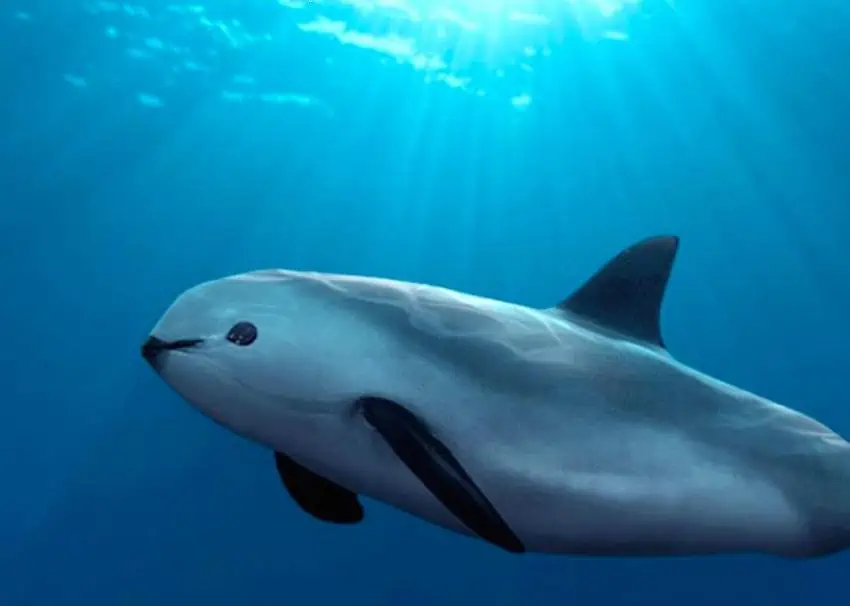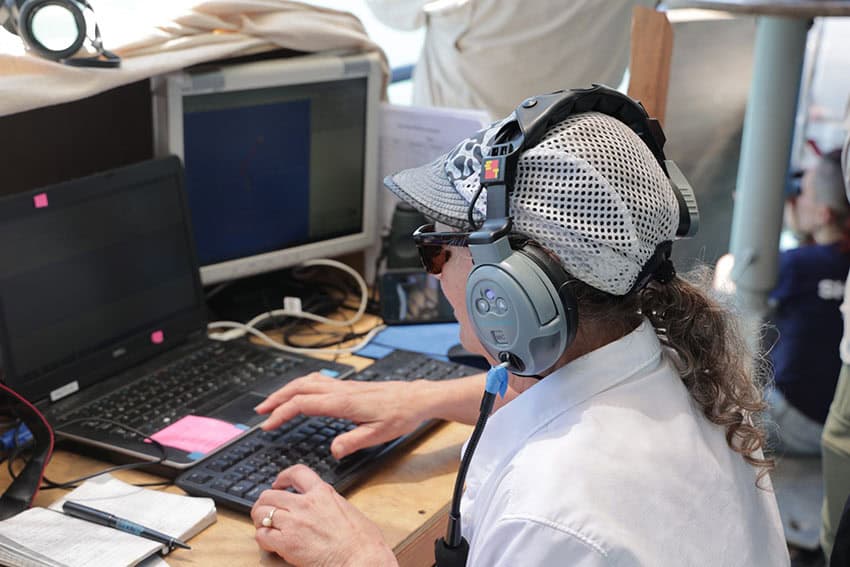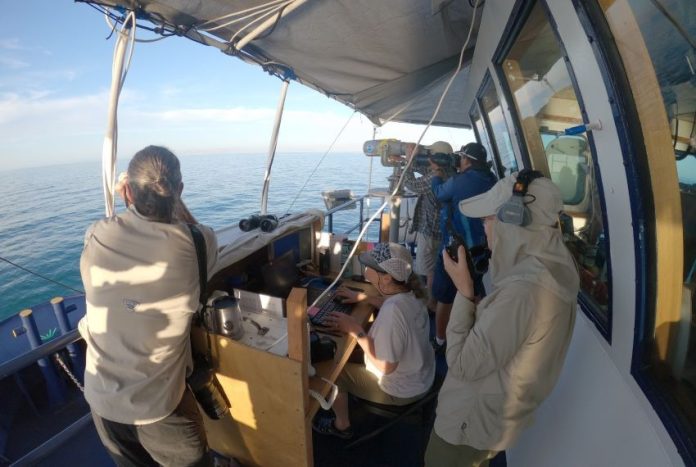In collaboration with several Mexican government agencies, the Sea Shepherd Conservation Society will begin its annual survey of vaquita porpoises in the Gulf of California in early May, it was announced this week.
The independent survey will examine the critically endangered mammals and how they are getting along in their only habitat — a small region of Mexican waters in the upper Gulf. The expedition will take place May 5–26, conducted by more than a dozen expert observers.

Since 2015, Sea Shepherd has worked with Mexico to protect the world’s rarest marine mammal by removing and preventing the placement of illegal fishing nets inside the UNESCO-recognized Vaquita Refuge in the Gulf of California.
Last year, the Mexican government and Sea Shepherd signed a historic agreement to expand the region where fishing is banned — also known as the “Zero Tolerance Area” — by over 60%.
The banned gillnets, which ensnare the vaquita, have brought the species to the edge of oblivion.
The vaquita porpoise is the world’s smallest cetacean, a grouping of aquatic mammals that includes whales, dolphins and porpoises. With chunky bodies and rounded heads, they measure about 1.5 meters (5 feet) long and weigh up to 68 kilograms (150 pounds), and their lifespan is estimated to be 20 years.
“They also have a round black patch around their eye and black lips that some people think makes them appear to be smiling,” BBC Wildlife Magazine said in February about the vaquita, which means “little cow” in Spanish. “Sadly, they don’t have a lot to smile about,” the magazine added.
Details about the 2024 survey were announced on Wednesday by Sea Shepherd officials and the Mexican government, a partnership that goes by the name Operation Milagro.

The Mexican entities include the Ministry of Environment and Natural Resources (Semarnat) and the National Commission of Natural Protected Areas (Conanp).
The expedition will be conducted in collaboration with the Navy (SEMAR) and Federal Attorney for Environmental Protection (Profepa).
Mexican, American and Canadian experts from the National Oceanic and Atmospheric Administration will also participate. Two ships will be used: “The Seahorse” and the “Sirena de la Noche,” both of which participated in last year’s survey.
María Luisa Albores González, the head of Semarnat, said that one of the main objectives is to count the vaquitas, and especially the young specimens.
Albores also said the participation of nearby coastal communities in the monitoring process will continue. This year, a group of 19 young people from the municipality of San Felipe, Baja California, will be involved.
Last year, Sea Shepherd’s monitoring mission observed between 10 and 13 vaquitas. This figure represented growth from the vaquita’s lowest-ever population in 2021, leading expedition head Barbara Taylor to state that the growth was the most encouraging news ever since human intervention to save vaquitas began.
Pritam Singh, Sea Shepherd’s CEO, thanked the inter-institutional collaboration that he said has achieved a more than 90% reduction in illegal fishing activity in the Zero Tolerance Area.
The conservation efforts are helping not only the vaquita, but also the totoaba fish, another endangered species in the region that is typically the intended target of the banned gillnets, and whose swim bladder is a lucrative black market commodity.
Vaquitas end up as collateral damage, dying trapped in the totoaba fishers’ illegal nets.
Vaquitas, which live in shallow waters, are endemic to an area of 2,235 square kilometers (863 square miles) in the Gulf of California. That’s the most compact range for any cetacean in the world.
In addition to visual monitoring, there will also be an acoustic component to the expedition. Some 30 F-POD sound detectors will be placed to pick up echoes from the porpoises to help the scientists locate them.
“The results of this survey will help guide the next steps in our growing collaboration with the Mexican government to protect the vaquita,” Singh said.
Mexico News Daily
